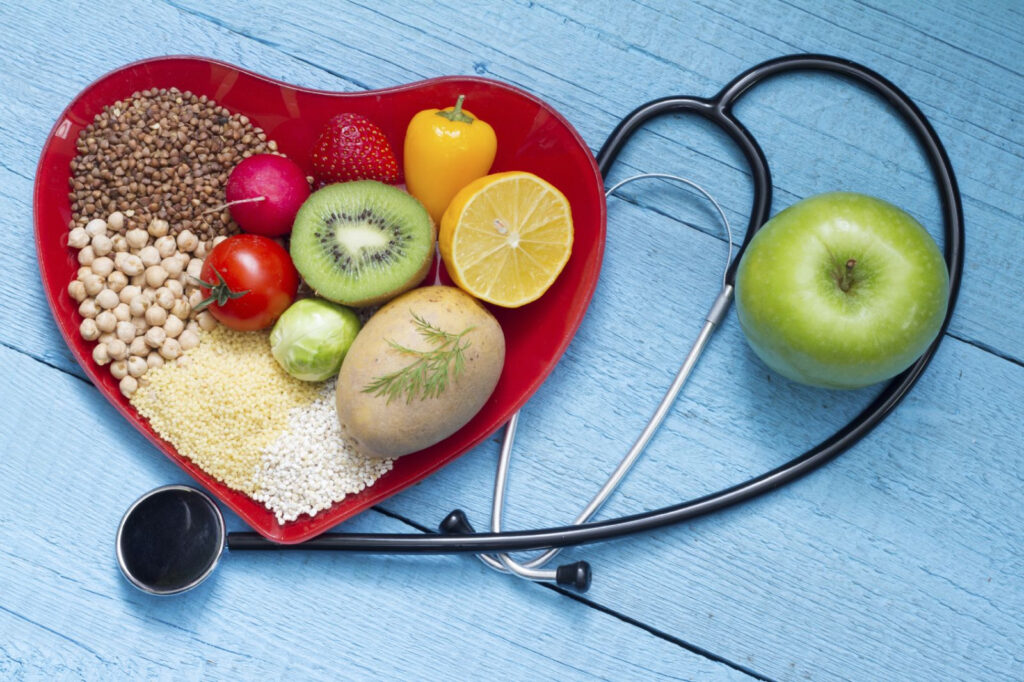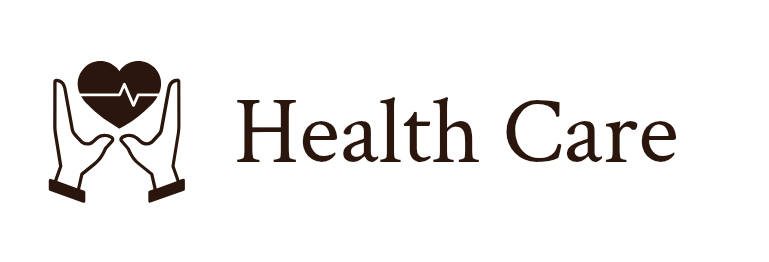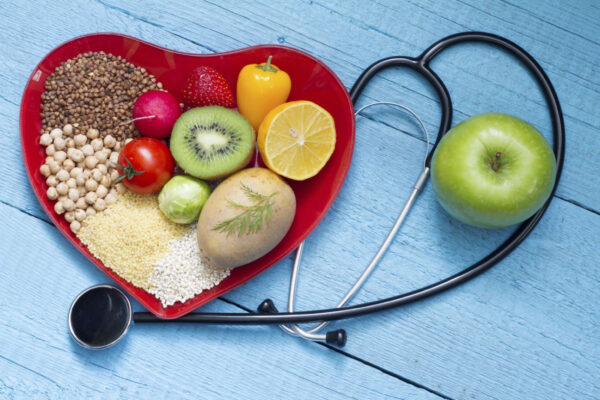
A Guide to Eating Vegetarian and Vegan for Improved Heart Health and Lowered Cholesterol
A Guide to Eating Vegetarian and Vegan for Improved Heart Health and Lowered Cholesterol Are You looking for ways to improve your heart health and lower your cholesterol levels? Look no further than a vegetarian or vegan diet! By eliminating animal products, you can significantly reduce your risk of heart disease and improve overall cardiovascular health. In this guide, we’ll explore the benefits of plant-based eating for heart health, provide tips on making the transition to a meat-free lifestyle, and share delicious recipes that will make you forget all about meat. So grab a fork and let’s get started on the path to improved heart health!
Are you looking to improve your heart health and lower your cholesterol levels? One of the best ways to do so is by adopting a vegetarian or vegan diet. In this comprehensive guide, we will explore the benefits of plant-based eating for cardiovascular health and provide tips on how to make the transition to a meat-free lifestyle. Whether you’re already a vegetarian or just curious about incorporating more plant-based meals into your routine, this post has everything you need to know about eating for optimal heart health. So let’s dive in!
Are you concerned about your heart health and cholesterol levels? Did you know that switching to a vegetarian or vegan diet can greatly benefit both? It’s true! By incorporating more plant-based foods into your meals, you can improve your overall health and reduce the risk of heart disease. In this guide, we’ll explore the benefits of a vegetarian or vegan diet for heart health and provide tips on how to make the transition seamlessly. Let’s get started on a path towards better health!
Introduction to a Vegetarian and Vegan Diet
If you’re looking to improve your heart health and lower your cholesterol, a vegetarian or vegan diet may be right for you. These diets are plant-based and do not include meat, poultry, or fish. Instead, they focus on fruits, vegetables, whole grains, beans, nuts, and seeds.
There are many different types of vegetarian and vegan diets. Some people choose to eat this way for ethical reasons, while others do it for health reasons. Whatever your reason may be, it’s important to make sure you’re getting the nutrients your body needs.
A well-balanced vegetarian or vegan diet can provide many health benefits. It can help lower blood pressure and cholesterol levels, and reduce the risk of heart disease, stroke, and type 2 diabetes. It can also help you maintain a healthy weight.
If you’re thinking about making the switch to a vegetarian or vegan diet, talk to your doctor or registered dietitian first. They can help you create a plan that meets your individual nutritional needs.
Benefits of Eating Vegetarian and Vegan
The benefits of vegetarian and vegan diets have been well-documented in medical research. Studies have shown that these diets can lower cholesterol, improve heart health, and reduce the risk of chronic diseases such as obesity, diabetes, and cancer.
Vegetarian and vegan diets are rich in fiber, vitamins, and minerals. They also contain phytochemicals, which are natural compounds that have protective effects against disease. Fiber helps to lower cholesterol and keep the arteries clear. Vitamins and minerals help to protect the heart and prevent chronic diseases. Phytochemicals help to protect against cancer and other chronic diseases.
A vegetarian or vegan diet can be tailored to meet your individual needs. You can choose from a variety of plant-based foods that are low in saturated fat and cholesterol and high in fiber, vitamins, and minerals.
Foods that Lower Cholesterol
A plant-based diet can improve heart health and lower cholesterol levels. There are many delicious and nutritious foods that can be enjoyed on a vegetarian or vegan diet, including fruits, vegetables, whole grains, legumes, nuts, and seeds. Here are some examples of foods that can help to lower cholesterol levels:
oats – beta-glucan, a type of soluble fiber found in oats, has been shown to reduce LDL (“bad”) cholesterol levels
barley – like oats, barley also contains beta-glucan soluble fiber which can help reduce LDL cholesterol levels
beans and lentils – these legumes are rich in soluble fiber and have been shown to lower LDL cholesterol levels
soy – soy contains isoflavones, which are plant estrogens that can decrease LDL cholesterol levels
nuts – almonds, walnuts, and other nuts contain monounsaturated fats which can help to reduce LDL cholesterol levels
agave nectar – this natural sweetener contains inulin fiber which can help reduce LDL cholesterol levels
Meal Planning Tips for Vegetarian and Vegan Diets
When it comes to vegetarian and vegan diets, there are a few things to keep in mind when meal planning. First, be sure to include plenty of fruits, vegetables, whole grains, and legumes in your diet. These foods are packed with nutrients that are essential for good heart
health. Second, make sure you’re getting enough protein. Protein is essential for keeping your muscles healthy and strong. Good sources of protein for vegetarians and vegans include tofu, tempeh, beans, lentils, quinoa, nuts, and seeds. Third, don’t forget to include healthy fats in your diet as well. Healthy fats are important for maintaining good heart health and lowering cholesterol levels. Good sources of healthy fats include avocados, olive oil, nuts, and seeds. Be sure to stay hydrated by drinking plenty of water throughout the day.
Recipes
When it comes to heart health and lowered cholesterol, there are many benefits to eating vegetarian and vegan. Here are some delicious recipes to help you get started:
Black Bean Brownies: These fudgy brownies are made with black beans, cocoa powder, and almond milk for a dairy-free treat.
Walnut Crusted Portobello Mushroom Steaks: This hearty recipe features portobello mushrooms that are topped with a walnut crust and served with roasted vegetables.
Spicy Quinoa Burrito Bowls: These burrito bowls are packed with protein-rich quinoa, black beans, corn, and avocado. They’re perfect for a quick and easy meal.
Sweet Potato Lentil Soup: This flavorful soup is made with lentils, sweet potatoes, kale, and spices. It’s perfect for a winter meal.
Chickpea Curry: This curry is made with chickpeas, tomatoes, onion, and spices. Serve it over rice or quinoa for a complete meal.
Alternatives to a Vegetarian or Vegan Diet
If you’re looking to improve your heart health and lower your cholesterol, you may be considering a vegetarian or vegan diet. However, there are a few alternative diets that can also provide these benefits.
The Mediterranean diet is one option that has been shown to improve heart health and reduce cholesterol. This diet focuses on fresh fruits and vegetables, whole grains, fish, and olive oil.
Another option is the DASH diet, which is designed to lower blood pressure. This diet emphasizes fruits, vegetables, low-fat dairy, whole grains, lean protein, and nuts.
The TLC diet was specifically designed to lower cholesterol. It includes foods like oatmeal, beans, lentils, peas, nuts, and fatty fish.
Conclusion
Eating a balanced vegetarian or vegan diet can help improve your heart health and reduce cholesterol. It’s important to ensure that you are getting all the essential vitamins, minerals, and nutrient-dense foods needed for optimal heart health. With some mindful planning and
understanding of what makes up a healthy vegetarian or vegan diet, you can easily make positive changes in your lifestyle that will benefit not only your heart but also your overall well-being.

